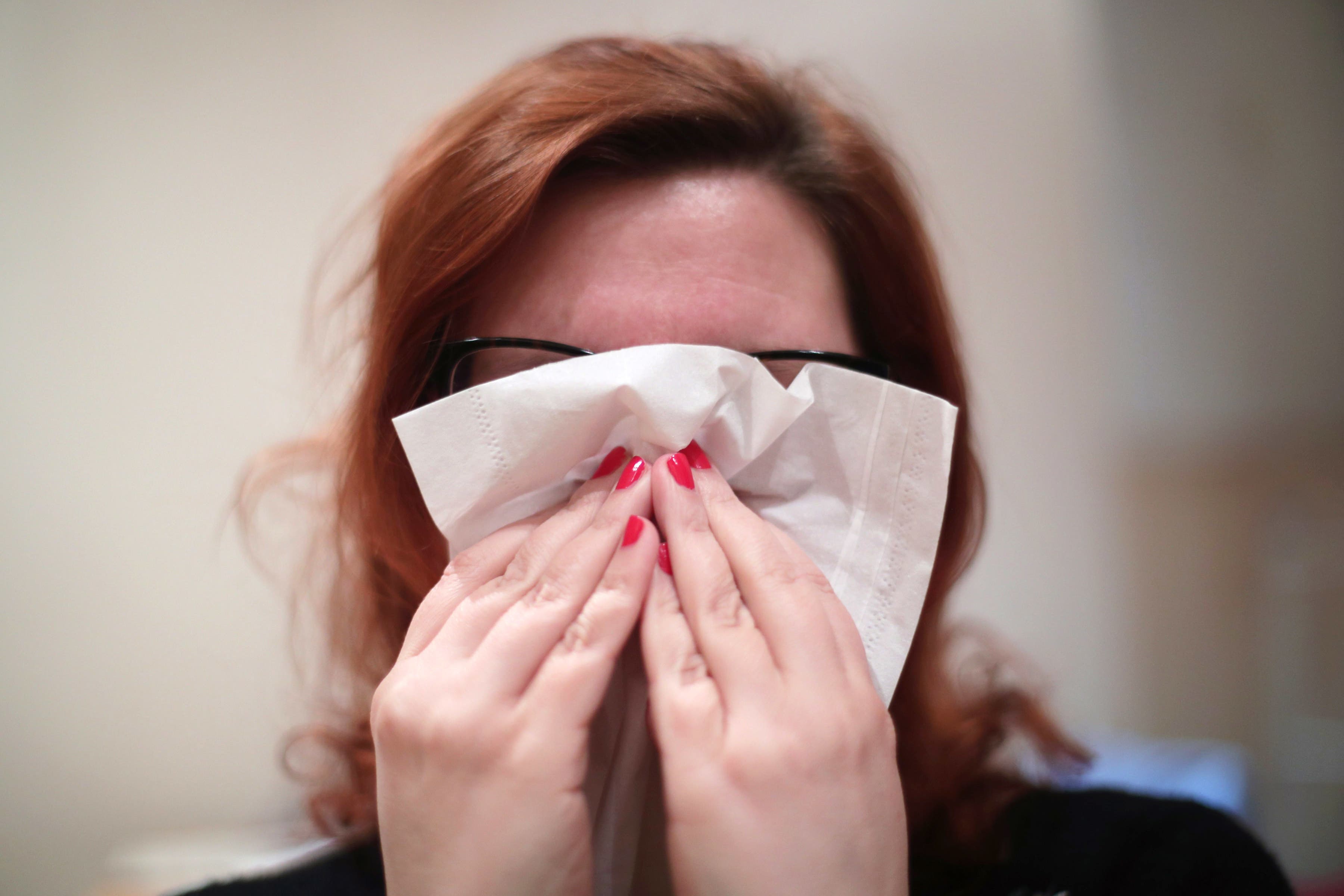Multi-million-pound trial to help rapidly find flu treatments this winter
While many people get flu and recover without hospital treatment, for some people it can be more severe, and even life-threatening.

Your support helps us to tell the story
From reproductive rights to climate change to Big Tech, The Independent is on the ground when the story is developing. Whether it's investigating the financials of Elon Musk's pro-Trump PAC or producing our latest documentary, 'The A Word', which shines a light on the American women fighting for reproductive rights, we know how important it is to parse out the facts from the messaging.
At such a critical moment in US history, we need reporters on the ground. Your donation allows us to keep sending journalists to speak to both sides of the story.
The Independent is trusted by Americans across the entire political spectrum. And unlike many other quality news outlets, we choose not to lock Americans out of our reporting and analysis with paywalls. We believe quality journalism should be available to everyone, paid for by those who can afford it.
Your support makes all the difference.A new clinical trial will use lessons learned from the pandemic to help quickly find treatments for severe flu, as experts warn there could be record numbers of cases this year.
While many people with flu get better on their own without needing hospital treatment, it can make some seriously ill and even be life-threatening.
There is no clear evidence about which treatments are best for severe cases.
The £2.9 million REMAP-CAP trial, originally set up to tackle pandemic, will work with the National Institute for Health and Care Research (NIHR) to recruit children and adults admitted to hospital with severe flu from 150 hospitals across the UK over the next two years.
We hope that our trial will help to find urgently needed flu treatments rapidly
This is the first time a trial of this kind will be used for flu.
It is exactly two years since REMAP-CAP showed how in Covid-19 reducing inflammation with the drug tocilizumab can save lives in severely ill patients.
The trial is designed to provide answers quickly by using a rapid approach to test multiple treatments at the same time in thousands of people.
The nature of the trial will allow the team to ensure people are given treatments that show encouraging results as soon as possible.
Professor Anthony Gordon, chief investigator of the new trial, from Imperial College London’s Department of Surgery and Cancer, said: “During the pandemic, our trial was able to rapidly respond to a new virus and our approach helped save lives.
Flu is very infectious and can make children, the elderly and vulnerable people seriously unwell in some cases
“We’re now redeploying it against a known threat.
“Flu is very infectious and can make children, the elderly and vulnerable people seriously unwell in some cases.
“This winter, we might see more flu cases than usual as the virus potentially resurges after pandemic measures have kept levels low.
“We hope that our trial will help to find urgently needed flu treatments rapidly.
“Our Covid-19 trial changed clinical practice globally, and we hope we can impact flu treatment and reduce winter pressures on the NHS in the same way.”
Running for two years (in the first instance), the trial aims to recruit several thousand people, and will test multiple treatments.
These include the anti-viral treatments oseltamivir (also known as Tamiflu) and baloxavir, as well as steroids and anti-inflammatory drugs that were found to be effective against Covid.
The trial will be open to adults, children, and babies over the age of one month who are in hospital with severe flu.
Working with a range of experts across the country, we hope to determine the best treatments for flu and ultimately save lives
Dr Elizabeth Whittaker, a consultant in paediatric infectious diseases at Imperial College Healthcare NHS Trust, said: “Flu can be a very serious illness for some children, in some cases leading to hospitalisation and problems like bronchitis and pneumonia.
“Getting the free spray flu vaccine is our first line of defence and drastically reduces the risks for children. But we also need more treatments to help those children who do become very ill, which is why this trial is so important.
“Working with a range of experts across the country, we hope to determine the best treatments for flu and ultimately save lives.”
Minister for Health and Secondary Care Will Quince, said: “Clinical research was vital in our fight against Covid and helped to save thousands of lives across the country.
“This innovative trial will use the lessons we learned from Covid and deliver treatments to reduce serious illness in patients with flu, ease pressure on the NHS and ultimately save lives.”
The researchers will study how effective the treatments are at reducing deaths from flu and stopping patients needing intensive care.
The trial will be run by researchers and clinicians from Imperial College London and Imperial College Healthcare NHS Trust in collaboration with other national experts.
It is funded by the NIHR and delivered by the NIHR’s Clinical Research Network.